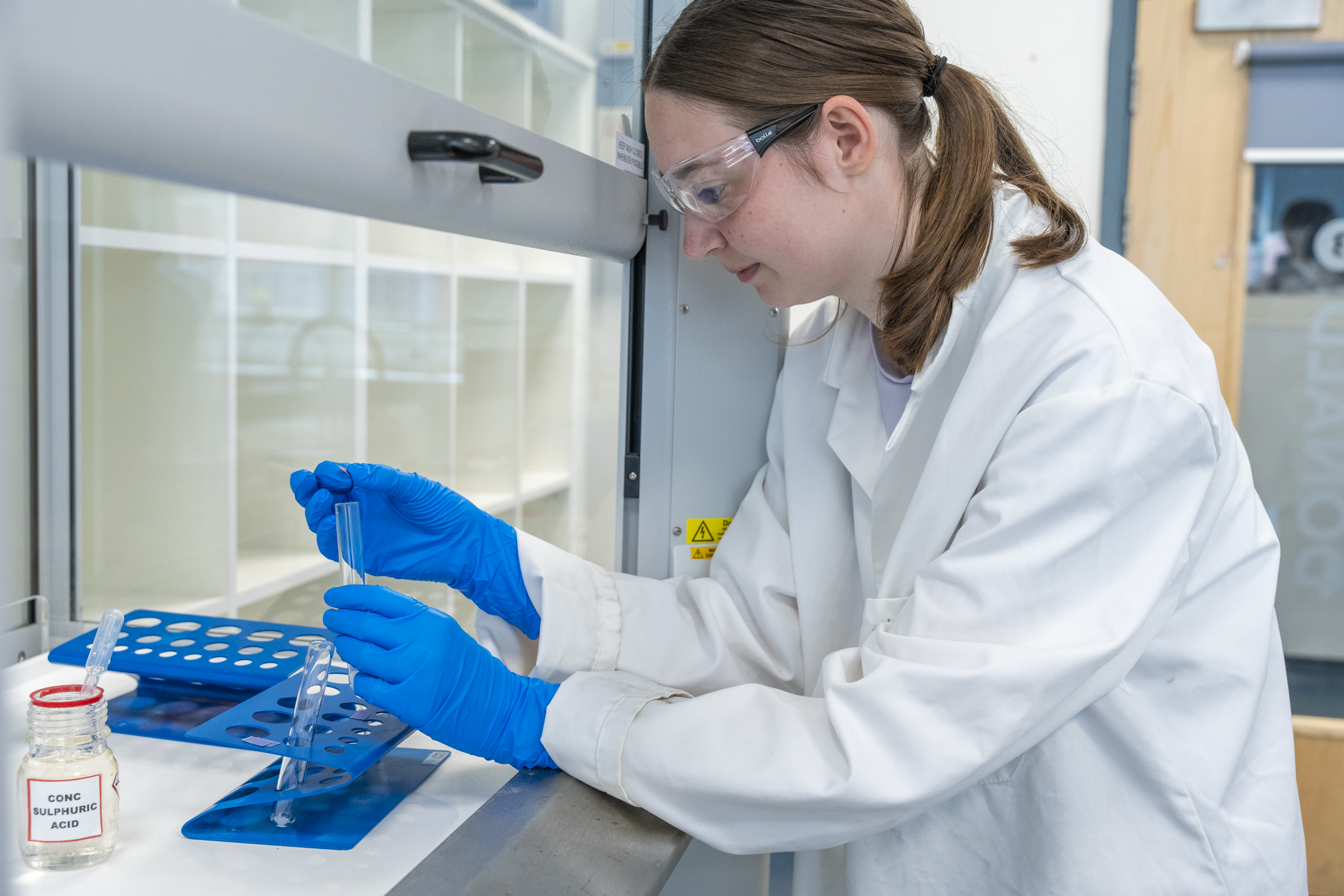Chemistry
Chemistry is both a fascinating and challenging science course that contains a good balance of practical work and theory. Chemistry helps students to develop a wide range of skills such as practical work, report writing, calculations and theory work. Students with a good grade at Chemistry A Level are well respected by universities. Chemistry is recognised as a challenging and demanding course that requires hard-work, self-motivation and good study skills.

| Course Information |
|---|
| Course Name: | AQA A-level Chemistry |
|
Course Type: |
Level 3 |
| Examination/Coursework: |
AS Paper 1 - Written exam: 1 hour 30 minutes. 80 marks. Physical chemistry topics (sections 3.1.1 to 3.1.4, 3.1.6 and 3.1.7) Inorganic chemistry (section 3.2.1 to 3.2.3) Relevant practical skills. AS Paper 2 - Written exam: 1 hour 30 minutes. 80 marks. Relevant physical chemistry topics (sections 3.1.2 to 3.1.6) Organic chemistry (section 3.3.1 to 3.3.6) Relevant practical skills A-level - Paper 1 - Written exam: 2 hours. 105 marks. 35% of A-level. Physical chemistry topics (sections 3.1.1 to 3.1.4, 3.1.6 to 3.1.8 and 3.1.10 to 3.1.12) Inorganic chemistry (section 3.2) Relevant practical skills A-level - Paper 2 - Written exam: 2 hours. 105 marks. 35% of A-level Relevant physical chemistry topics (sections 3.1.2 to 3.1.6 and 3.1.9) Organic chemistry (section 3.3) Relevant practical skills A- level - Paper 3 - Written exam: 2 hours. 90 marks. 30% of A-level Any content Any practical skills |
|
Exam Board: |
AQA |
|
Entrance Criteria: |
Standard Sixth Form entry plus Grade 6 in GCSE Chemistry or Grade 66 in GCSE combined Science. |
| Topics & Areas Covered: |
Year 12: Organic Chemistry 1. Introduction to organic chemistry, Alkanes, Alkenes, Alcohols and Organic analysis. Physical Chemistry 1. Atomic structure, Amount of substance, Bonding, Energetics, Kinetics, Oxidation, reduction and redox equations. Inorganic Chemistry 1. Periodicity, Group 2, the alkaline earth metals, Group 7 and the halogens. Year 13: Organic Chemistry 2. Optimal isomerism, Aldehydes and ketones, Carboxylic acids and derivatives, Acylation, Aromatic chemistry, Amines, Polymers, Amino acids, proteins and DNA, Organic synthesis and NMR. Physical Chemistry 2. Thermodynamics, Rate equations, Equilibria, Electrode potentials, Acids and bases. Inorganic Chemistry 2. Properties of period 3 elements and their oxides, Transition metals, Reactions of ions in aqueous solutions. |
|
Career Pathways: |
There are many options available to students after studying Chemistry A Level. Chemistry complements any science related degree or job; it is also essential for many degrees such as further chemistry, biochemistry, medicine or veterinary science, chemical engineering, environmental science, drug design and synthesis, pharmacy, material science, and many more. Chemistry graduates are also highly valued in the world of finance and commerce. |
| AS/A-Level: | This course can be completed as an AS Level |

